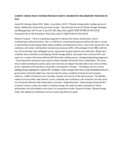| dc.contributor.author | Njoroge, Joseph M. | |
| dc.contributor.author | Ratter, B.M.W. | |
| dc.contributor.author | Atieno, L. | |
| dc.date.accessioned | 2017-08-24T13:52:55Z | |
| dc.date.available | 2017-08-24T13:52:55Z | |
| dc.date.issued | 2017 | |
| dc.identifier.uri | http://hdl.handle.net/123456789/2756 | |
| dc.identifier.uri | http://www.emeraldinsight.com/doi/full/10.1108/IJCCSM-10-2016-0154 | |
| dc.identifier.uri | https://www.researchgate.net/publication/317969584_Climate_change_policy_making_process_in_Kenya_deliberative_inclusionary_processes_in_play | |
| dc.identifier.uri | https://www.emerald.com/insight/content/doi/10.1108/IJCCSM-10-2016-0154/full/html | |
| dc.identifier.uri | https://www.semanticscholar.org/paper/Climate-change-policy-making-process-in-Kenya%3A-in-Njoroge-Ratter/a97cebd3ef98dfd47dbf303c0dd14c685b1a8231 | |
| dc.description.abstract | Abstract Purpose – There is a growing recognition in Kenya that citizens should play a role in contributing to policy formation. This is a shift from a conventional approach where the elite in society or selected few would largely define policy problems and determine actions. One of the approaches that underpins such views is deliberative inclusionary processes (DIPs). DIPs emerged in the 1980s with the rise of civil societies that challenged various approaches by governments and authorities. While most countries have embarked on developing climate change policies, this paper aims to discuss DIPs and report on a study of the Kenya Climate Bill 2014 policy-making process. Design/methodology/approach – Semi-structured interviews were used to obtain valuable information from stakeholders. The study aims at understanding how policy space and outcomes are shaped by policy discourses and narratives; actors, networks and institutions; and politics and interests. Findings – The Kenyan case of a policy-making process represents a typical DIP. However, it had a unique start from social movement action to government ownership which was characterized by serious problems of inclusion and exclusion, relations, conflict of interests and a real play of power and control of the policy process. The findings underscore how politics and interests; actors, networks and institutions; and narratives and discourses are among the elements that shape policy outcomes. Originality/value – Kenya being among the first countries to have a policy document on climate change, this study provides an insight for future policymakers and practitioners and a basis for comparative studies. Keywords Kenya, Climate change, Policy, Bill, Deliberate inclusionary process Paper type Research paper | en_US |
| dc.language.iso | en | en_US |
| dc.publisher | International Journal of Climate Change Strategies and Management | en_US |
| dc.subject | Climate change | en_US |
| dc.title | Climate change policy-making process in Kenya: deliberative inclusionary processes in play | en_US |
| dc.type | Article | en_US |

